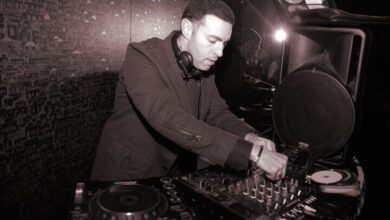From Boardroom to Stage: How Business Professionals Are Finding Their Voice Through Acting

Business professionals are finding their voice through acting by using performance techniques to build confidence and improve communication skills. These methods unlock creative expression that changes their workplace presence and personal fulfillment.
You probably felt it before. Standing in front of a conference room, your voice shaking slightly as you present quarterly results. Many professionals hit a wall where technical skills aren’t enough anymore.
At Krisp Production, we’ve seen how acting techniques change workplace presence and unlock creative potential.
In this article, we’ll walk you through everything you need to know about using acting for professional and personal growth. You’ll learn:
- Why business professionals are drawn to creative expression and career changes
- How to develop new skills through acting classes while building industry connections
- Stage techniques that build confidence in high-pressure situations
Let’s explore how the skills that make great actors also create exceptional leaders.
The Call for Creative Expression: Why Business Professionals Seek a Career Change
Many business professionals seek a career change through creative pursuits, meaningful work that aligns with their values, and opportunities for personal growth beyond traditional corporate structures. The reason this shift happens is simple: people want work that feels authentic to who they are, not just what they do for a paycheck.

Here’s what’s driving this movement toward creative careers:
Escaping the Corporate Grind
Ever wonder why successful executives suddenly leave six-figure salaries to become actors or artists? The answer lies in a growing disconnect between professional success and personal satisfaction. When you spend years climbing the corporate ladder, you might discover that reaching the top doesn’t feel as rewarding as you expected.
Common reasons professionals seek new opportunities include:
- Lack of creative fulfillment in current roles
- Desire for more meaningful work
- Burnout from high-pressure environments
- Limited opportunities for self-expression
According to the Pew Research Center, only half of U.S. workers say they are extremely or very satisfied with their job overall. The reason many leave is that they’re seeking roles that offer greater personal satisfaction. Apparently, corner offices and company cars can’t buy you happiness (who knew?).
The Drive for Personal Growth and Creative Expression
Personal growth becomes a priority when professionals realize their current roles no longer challenge them in meaningful ways. Once this realization hits, creative expression offers new opportunities to explore untapped potential and pursue personal goals that extend beyond quarterly reports and profit margins.

What makes this career shift appealing is how it helps professionals discover parts of themselves that corporate life never allowed them to explore. This transition often leads to skills you never knew you possessed and opens doors to possibilities you hadn’t considered.
The Transformative Journey: Learning New Skills
Thinking about making a career change, but worried you don’t have the right skills? Don’t worry, we’ve got your back. In this section, we’ll let you know how business professionals can build on what they already know while learning the creative skills they need.
Here are the two main areas to focus on:
Accepting New Roles and Taking Classes
When you accept new roles in creative fields, you have to be okay with being new at something again. You need to keep learning through classes and real practice. The reason this feels different is that you have to see mistakes as ways to learn, not as failures.
Also, taking classes on acting or other creative skills helps you build knowledge and gives every career changer the confidence they need.
For example, if you work in marketing and want to become an actor, you might take weekend acting classes while keeping your day job. This way lets you learn new skills without money worries.
What often surprises people is how their business skills help them approach classes the same way they learned to do reports. Turns out all those PowerPoint presentations were actually rehearsals for the stage.
Pro Tip: Start with one class to see if you like it before making major changes. Learn the basics first, then build harder skills as you feel more confident.
See also: Is there a sweet spot between versatility and performance?
Using Soft Skills for Career Advancement
Once you start your class learning, the soft skills you learned in business become helpful in creative careers. These skills work well because giving presentations, solving problems, and working under stress all help with acting and art work.
After a few sessions in acting, you’ll learn techniques that mix your business background with artistic expression for faster career advancement.
We recommend finding three soft skills, like communication, leadership, or time management, from your business career that work in your new field.
Practice using these skills through exercises and real situations. Within a few months, you’ll see real results in how you handle creative challenges like stage nerves, group projects, or tight deadlines.
Building a New Network
If you’re entering a creative field, making friends with other artists, directors, and industry people can help you discover opportunities, learn new skills, and get advice on finding work. It’s not a coincidence that we’ve heard many stories from people who got their best opportunities through someone they met in class or at an event.
So, connect with others in your new field. You can join local theater groups, creative classes, or online groups for your new field. When you go to industry events or help with shows, you’ll meet people from your classes and build work relationships that last. These connections often lead to your next role or project when the time is right.
Now that you know how to develop the skills and connections you need, let’s see how this creative change affects other parts of your life.
Beyond the Stage: The Lasting Impact on Life
The benefits of acting training affect every part of your life, like improved communication, stronger confidence, and better emotional awareness. When you learn acting techniques, you’re developing skills that help you handle stress and express yourself more clearly in everyday situations.
What’s more, acting teaches you to read people better and respond with more awareness. These skills naturally improve your mental health by giving you tools to manage anxiety and build genuine connections with family, friends, and coworkers. Plus, many people find that acting helps them reach their full potential in ways they never expected.
Here’s how specific acting techniques help in real-life situations:
- Breathing Exercises: Breathing exercises like diaphragmatic breathing and 4-7-8 breathing help you stay calm during stressful meetings, presentations, and difficult conversations. You become someone who can think clearly under pressure instead of reacting emotionally.
- Emotional Memory: When you practice recalling and using your own experiences to understand characters, you connect more deeply with family, friends, and work colleagues. Trust us, this skill makes you a better listener and helps you respond with empathy.
One of our clients, Ryan, shared how learning breathing techniques in acting class helped him stay composed during job interviews. He went from feeling nervous to landing three job offers in two months. What surprised him most was how the sense of satisfaction and fulfillment he gained from acting spread into every area of his life, making him a more confident father and husband, too.
Your Next Chapter Starts Now
Business professionals everywhere are discovering that creative careers offer the fulfillment their corporate jobs couldn’t provide. The path from boardroom to stage is happening right now, and the tools to make this transition are within your reach.
Throughout this article, we’ve explored why professionals seek creative expression, how to develop new skills through training, and ways to build meaningful industry connections. Also, you’ve learned how acting techniques improve communication, confidence, and emotional awareness in everyday life situations.
When you’re ready to explore how acting can change your professional and personal life, we’ll be happy to help you take that first step.





